The Courage Of Fighting A War Which Lose Was Inevitable, The Courage Which Terrified The Mighty British Empire
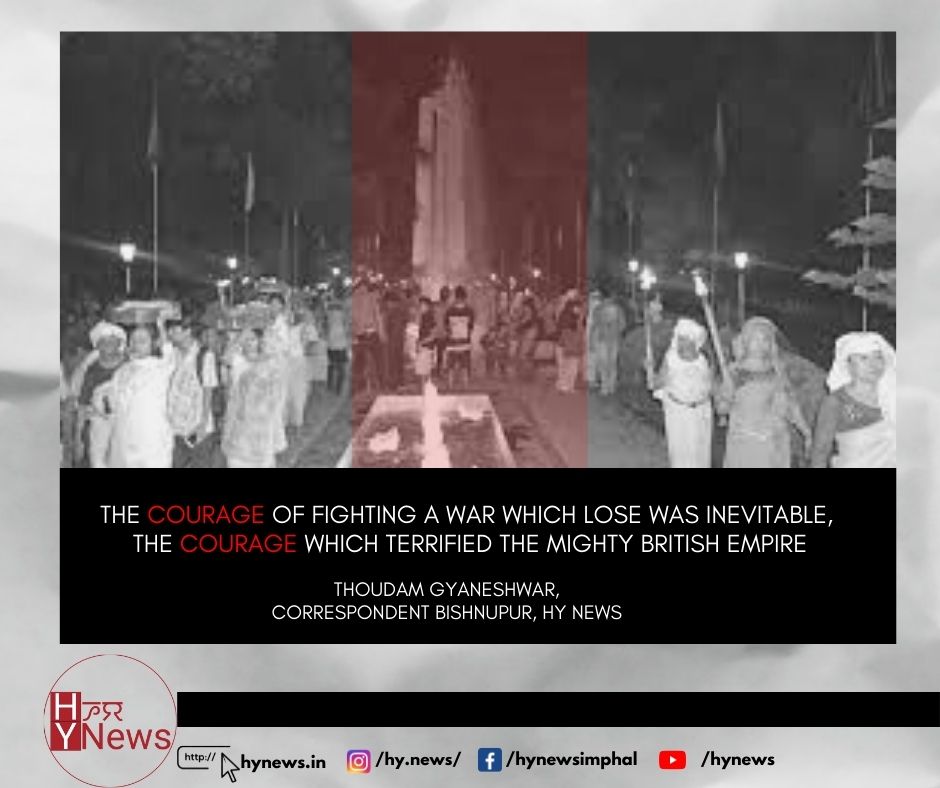
13th August is an important day for all the Manipuris living in and outside the state of Manipur. After the lose of Manipur in Anglo- Manipuri war of 1891 several royal families and their close ally were exiled and some were hanged with serious treason, on 13 August of 1891 two brave son Koirengsana aka Yuvraj Tikendrajit crowned Prince of Manipur along with Thangal General closest ally of Koirengsana was hanged to death by the British in the presence of huge public at Pheidapung presently known as Bir Tikendrajit Park. The day is paying homage to them and unsung martyrs who chose death over surrendering and lay down their lives in protecting the sovereignty of the then Manipuri Kingdom.
Let us trace back to the history and find out the relation between the British and the Manipuri before the war. After the dreadful Seven Year devastation, during 1824-1826 Manipur can reclaimed its Kingdom and Sovereignty from the Ava (Burmese) with the help of British and Gambhir Singh was installed as the King of Manipur and the Kingdom remained under the protectorate of British. From here the British colonial government begins to interfere in the administration of Manipur. The British Residency was set up in Manipur in 1835 and Political Agent was sent to Manipur to keep a close watch on the affairs of the Kingdom. The relation between the Kingdom and the British was good until the death of Chandrakirti, after his death Surchandra became the King of Manipur, there was sectarianism between 10 Princes and British got a window to fully interfere in the affairs of the Kingdom.
The frequent internal conflicts of palace intrigues and coup allowed the power of the Political Agent to rise and the British office turned out to be the de-facto administrator of the state. After a long lobbying in the royal palace Koirengsana and his groups backed by Thangal General rebelled against the King on September 21, 1890, Surchandra and his groups fled and seek refuge at the British Residency in Manipur, Kullachandra on 23rd September was installed as the King and Koirengsana became the Yuvraj (Crown Prince), from there all the affairs of state was supervised by Koirengsana who is an able and a charismatic persona of all of the princes. Surchandra under the protection of British reached Calcutta and complained to the then Viceroy, Lord Landsdown that he had been dethroned by his stepbrothers mainly backed and engineered by Koirengsana. This prompted the British to arrest Koirengsana sensing his potentials and signs indicative of shaking off the yoke of dependence on the British officials.
With the order of Viceroy to arrest Koirengsana, the Chief Commissioner of Assam Mr. Quinton arrived at Imphal on 22nd March 1891 with 400 Gurkha Soldiers under Colonel Skene. Mr. Quinton informed Kullachandra of the intention of the British Government that Kullachandra would be recognised as the King of Manipur while Koirengsana had to be exiled. Kullachandra was asked to handover Koirengsana to the British to which Kullachandra refused. The British force infiltrated the residence of Koirengsana without declaring war and attacked the Kangla, the palace of Manipur on 24th March 1891. The unprecedented and unjust act of British claimed the lives of many innocent civilians besides heavy casualties and bloodshed on both sides. To come to a peaceful concord between the two sides, Chief Commissioner Quinton, Political Agent Grimwood, Col. Skene, Cossin and Lt. Simpson went to the palace the next day, unarmed and without escorts. When the British Officers returned and moved towards the gate, they were attacked by the agitated crowd. Pukhramba Kajao speared Grimwood as an act of impulse and Lt. Simpson was also badly injured. At the demand of the agitated crowd, General Thangal gave the order to the public executioner to kill the British officers and all the British officers were beheaded in front of the Kanglasha.
The news reached Calcutta on 31st March 1891, the Government of British India declared war against the Kingdom of Manipur and sent very large columns of their army from three directions, one from the north through Kohima under the command of Major General H. Collet, who was also the overall Commander of The British Forces, advanced for operations in Manipur, another column advanced from the west west from Silchar under the command of Colonel RHF Rennick and a third column came from the South from Tamu, Burma(present day Myanmar) under the command of Brigadier General T. Graham. The British column that advanced from Tamu met the stiffest resistance from the Manipuris at Khongjom while the column that advanced from the west did not have much resistance and broke through to finally take possession of "Kangla" the palace of Manipur. On 27th April 1891, all the three British columns occupied Imphal, the capital of Manipur sounding the death knell of whatever sovereign power the kingdom of Manipur had enjoyed.
After a full British occupation of Manipur, the Government of British India constituted a court and tried Kullachandra, Koirengsana, Thangal and many others. Koirengsana and Thangal were sentenced to death and the death sentence of Kullachandra was commuted to transportation for life and forfeiture of property. Koirengsana and Thangal was hanged on 13th August 1891. Besides them Pukhramba Kajao, Niranjan Subedar and Chirai Naga were also hanged in Jail on 25th May, 8th June and 13th October on the same year respectively.
Manipuri lose their sovereignty but their courage and skill terrified the mighty British empire. Despite the facts that Manipuri soldiers are outnumbered, poorly trained and disciplined with less modernised weapons and small funding of war expenditure the lose of war was inevitable against the highly disciplined regular armed force of British Empire with highly modernised weapons, heavy funding of war expenditure and tactful General, but they chose to fight until the last man and fought valiantly offering a stiff resistance to their advancement.
The war can be avoided and the situation can be concluded with a truce if the Quinton don't provoke the Manipuris and the if the Manipuris allowed the five British officers to enter the Royal Palace to concord the war may be avoided by tactful diplomacy. The war was caused by unjust and unprecendented provokation of Quinton and aggression of raged and agitated Manipuris who attacked the unarmed British officers and Surchandra folly complaint to the Viceroy.
We can't change the history but many lessons can be learnt from the past, the most significant lesson that we can learn from this past is that internal disturbance and frequent fighting, intrigue and coup between the royals allowed the outside power to interfere on the affairs of the state and folly things committed by some can cause and inflict great loss to a kingdom or nation.


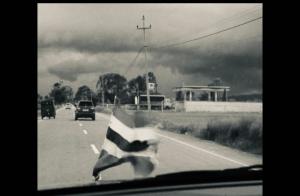
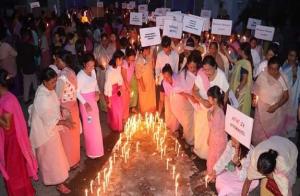

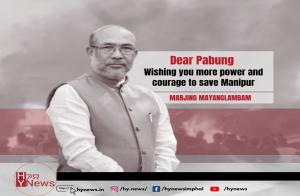

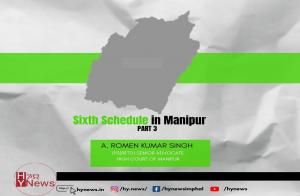
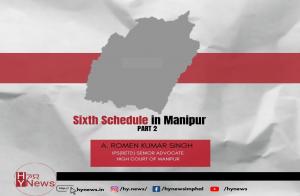
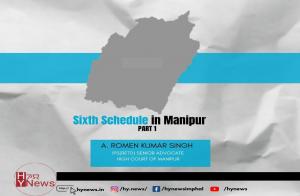







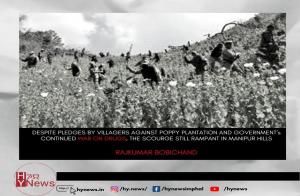





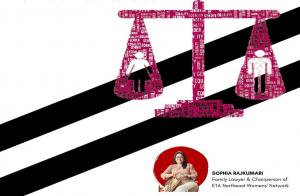

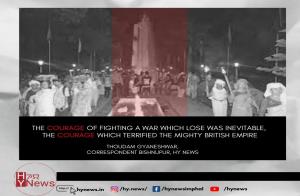


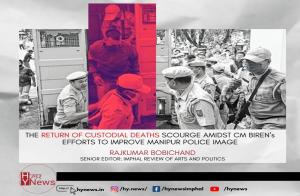

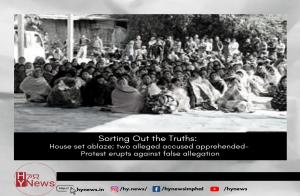





Leave Comments